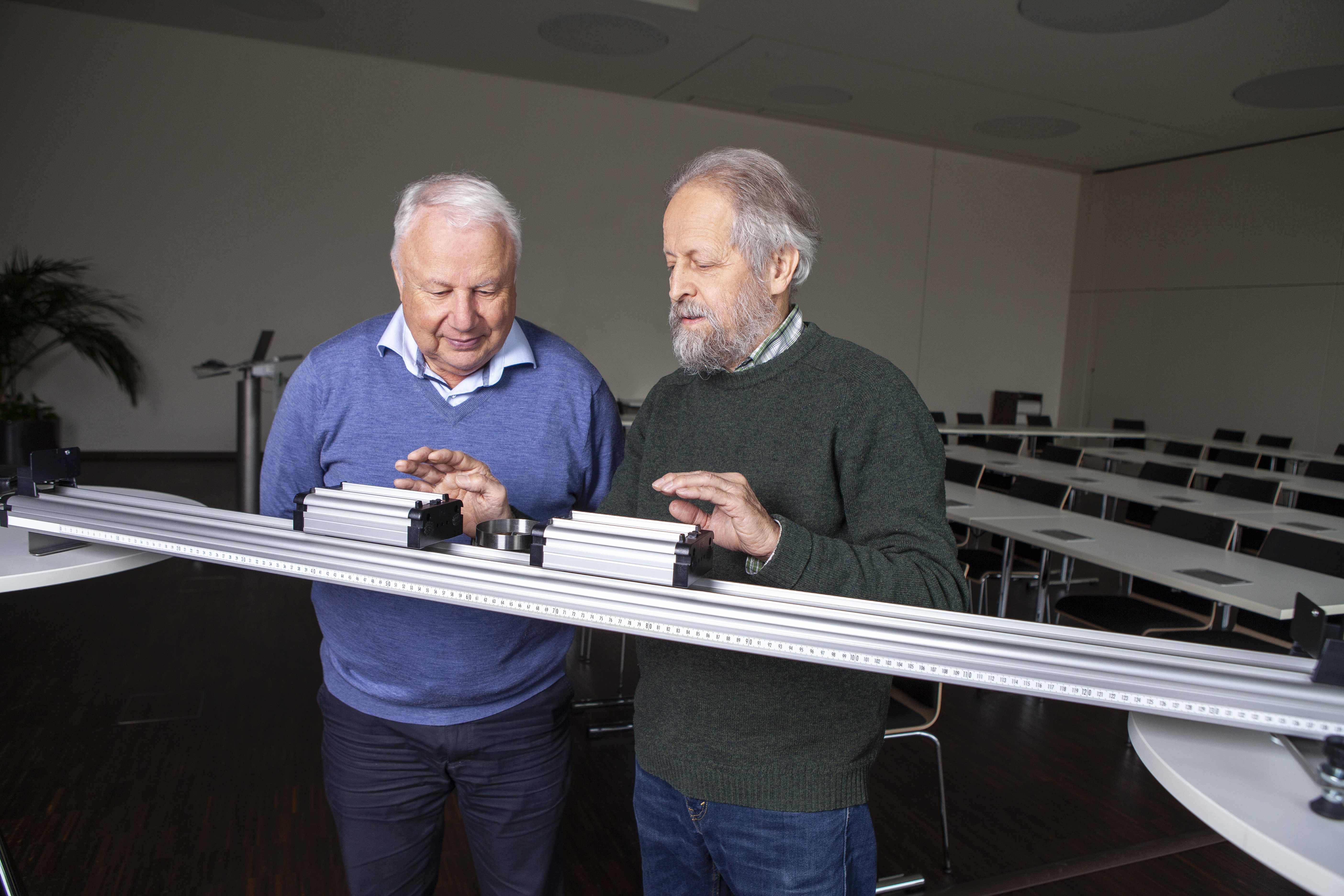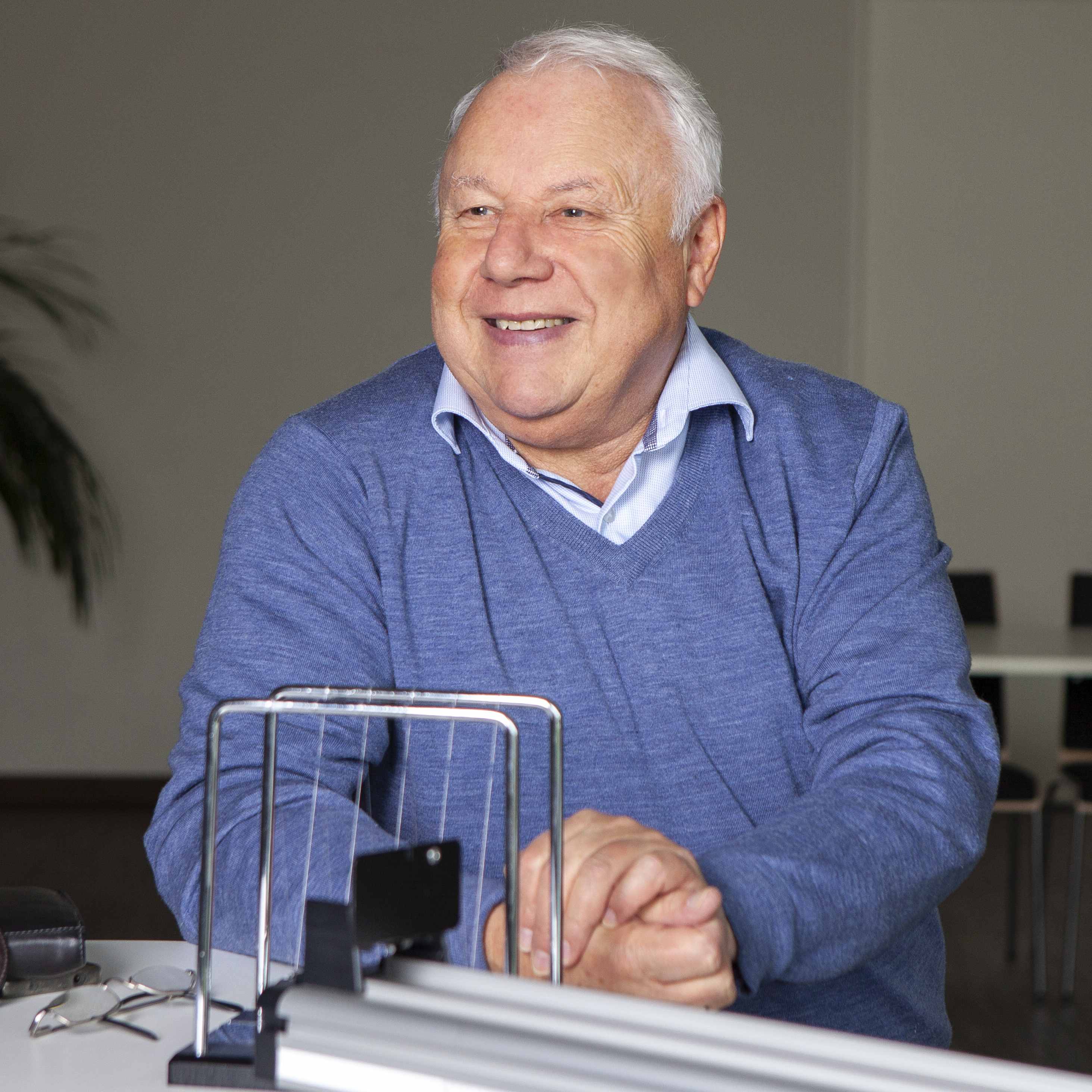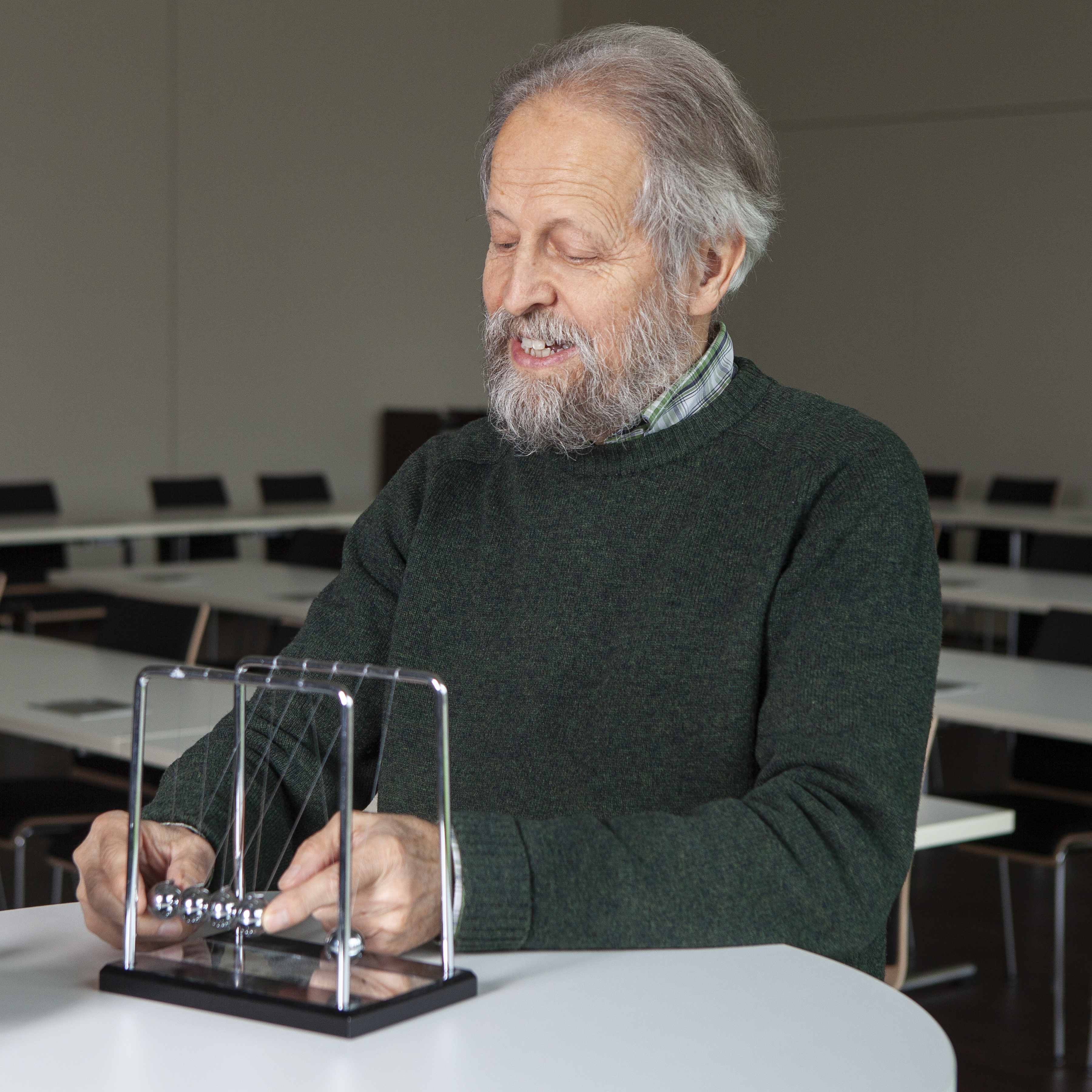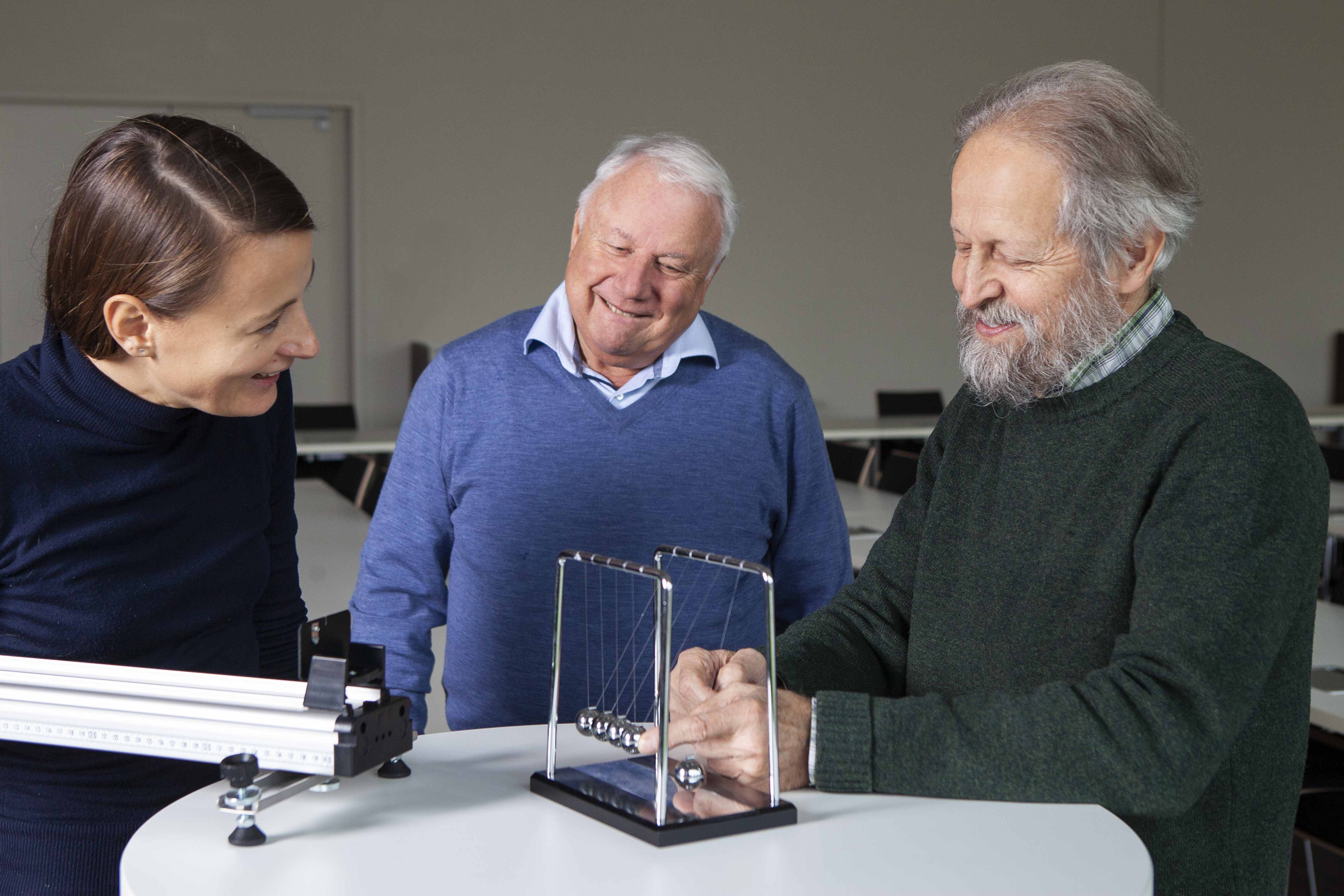Josef Rosenzweig and Klaus Köhler talk about their teaching activities at INATECH (Department of Sustainable Systems Engineering) at the University of Freiburg.
»Suddenly there is the moment of surprise, when something completely unexpected happens.«
In conversation with Josef Rosenzweig and Klaus Köhler
What do you teach at the University of Freiburg?
Köhler — Prof. Oliver Ambacher offers a lecture on “Mechanics” as well as “Electrodynamics and Optics” at INATECH. During the lectures, I conduct experiments…
Rosenzweig — … and I offer the accompanying tutorials. I calculate tasks on the blackboard so that students can check their own results.
What do the students learn in your lectures?
Rosenzweig — They get an introduction to the basics of physics—on mechanics for instance, including Newton’s Laws, energy, momentum, angular momentum, the effect of surface tension, the theory of relativity and, not to forget, waves.
Köhler — In addition, Oliver Ambacher always dives into quantum mechanics, which follows its own laws; and the module “Electrodynamics and optics” mostly covers charges, currents, electromagnetic waves and, of course, optics.
What knowledge should students have acquired by the end of the semester?
Köhler — They should definitively have understood the basics of physics. They need to know how a simple engine works and be able to calculate using mathematical tools.
Rosenzweig — It is also important to me that they are inspired by physics, since it is possible to understand so much with just basic laws. This is different compared to the other natural sciences. In physics, you actually don’t need to know very much, however, the few things you have to know must be mastered.
Why are the experiments so important?
Köhler — An experiment conveys a physical law much faster and more vividly than a lengthy explanation. For us, it is important that it stays simple. For example, I can place a pencil upright on a sheet of paper and pull the sheet away without the pencil falling over—that is how easily the law of inertia can be illustrated.
Rosenzweig — Such an experiment brings life to the lecture. Surprising phenomena are memorized much more easily. Even 50 years later, the students will recall an exciting experiment from their studies.
Köhler — Of course, I cannot demonstrate every experiment in class, which is why I also record short videos for the lectures. For example, I let ink drip into cold and warm water. In the cold water, the ink turns the water blue, but in the warm water, the drop dissolves immediately into all directions. It is so simple but at the same time so vivid.
What do you enjoy most about your work?
Rosenzweig — I enjoy working with young and curious people and explaining the beauty and simplicity of physics to them.
Köhler — For me, the demonstration of experiments is always a highlight. I notice immediately when the tension of the audience is rising. Then, suddenly there is the moment of surprise, when something completely unexpected happens. For example, we show an experiment with a full glass of water. I cover it with a net and turn it upside down—of course, everyone expects a puddle and so the surprise is huge when the water stays inside the glass due to surface tension.
What is the most spectacular experiment that you’ve demonstrated?
Köhler — That was when we made a magnet float. First, you need to cool a superconductor with liquid nitrogen below its transition temperature and induce electricity. Then, when a magnet is placed on top of it, it starts to float. The superconductor suddenly turns into an ideal diamagnet, which is surprising, since this is not the behavior one would expect from an ideal conductor.
How do you keep up the students’ interest in physics when it starts to get complicated?
Rosenzweig — Most of the students start studying right after high school and, especially in mathematics, they need to perform at a much higher level than they are used to. We are aware of this and try to support them with helpful leads and best practices. When things get difficult, you need to keep trying. Because when you finally understand a topic after the third or fourth attempt, isn’t that even more satisfying?
-----------------------------
Josef Rosenzweig and Klaus Köhler have known each other since their studies at the Institute of Technology in Karlsruhe and have been colleagues for many years at Fraunhofer IAF. Since the winter term 2018/19, they accompany the lectures of Prof. Oliver Ambacher with experiments and tutorials at INATECH at the University of Freiburg.
 Fraunhofer Institute for Applied Solid State Physics IAF
Fraunhofer Institute for Applied Solid State Physics IAF


